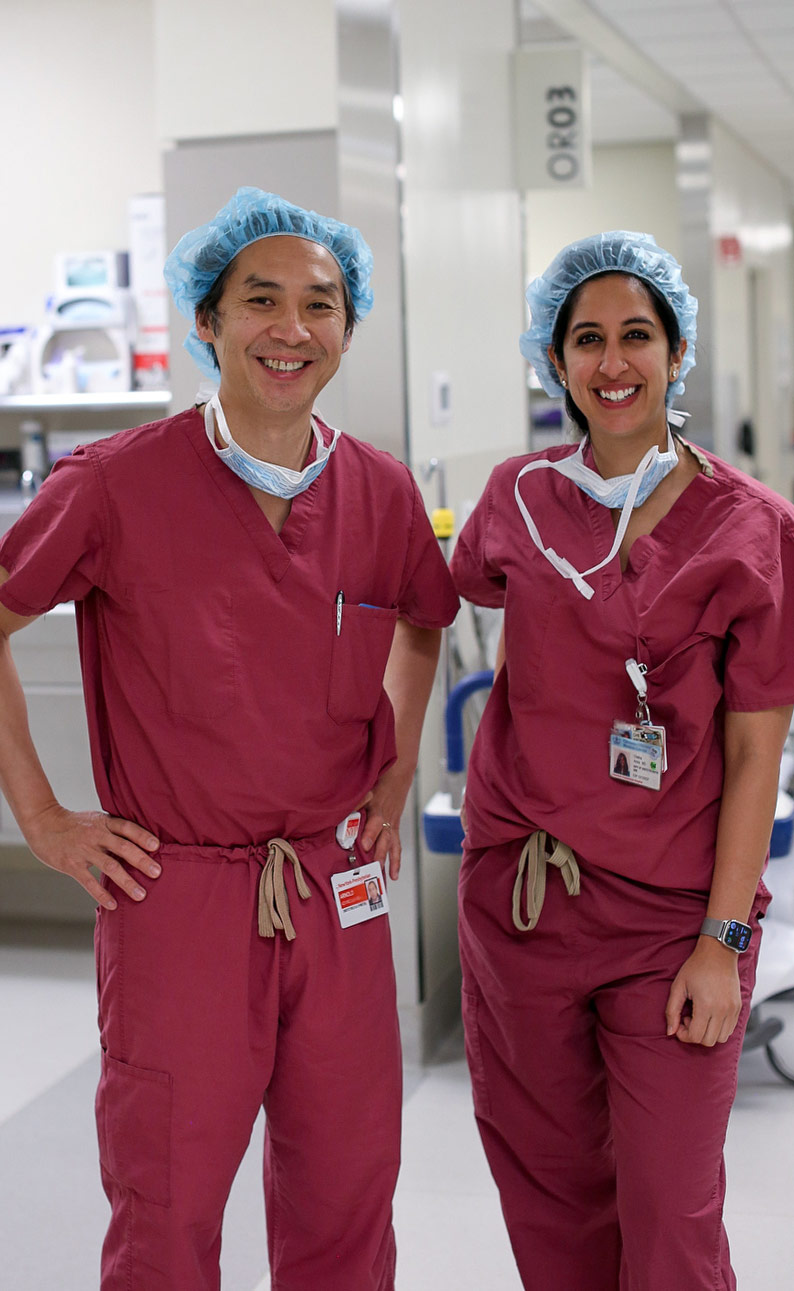GYNECOLOGIC SURGERY
Gynecologic surgery adds two new hospital sites
ince joining Columbia in 2014, Arnold Advincula, MD, Chief of the Division of Gynecologic Specialty Surgery at NewYork-Presbyterian/Columbia University Irving Medical Center, has made it his mission to transform gynecologic surgery in New York City and beyond. Over the past eight years, Dr. Advincula has recruited a team of minimally invasive gynecologic surgeons with the full complement of surgical skills and dedication to moving the field forward in innovative ways.
With a solid team in place, Advincula began to think about how they could grow the number of patients they were able to treat. During the pandemic, outpatient procedures were sharply curtailed, and booking space in the busy operating rooms at Milstein Hospital on the main CUIMC campus became even more challenging. Advincula saw an opportunity to maintain and grow their surgical volume in the comparatively quiet and newly renovated operating room at NewYork-Presbyterian Westchester in Bronxville.
“When the pandemic hit, we deferred almost 300 surgeries, and when we were able to begin to operate again, we found we had more availability at Westchester, but not at the main campus,” Advincula said. “Now, two years later, all our providers operate at Westchester, we moved a new surgical robot up there, and we run one robot nearly exclusively. It’s been a huge plus, and it’s helped us improve access for patients in Westchester and that suburban community.”
While operating at NewYork-Presbyterian Westchester expanded access for patients outside of the city, Advincula also saw a huge need to improve access for patients in lower Manhattan, Brooklyn, and Staten Island. Through a new collaboration with our partner institution NewYork-Presbyterian, Advincula began building a surgical service at NewYork-Presbyterian Lower Manhattan Hospital, introducing robotic surgery and a brand-new surgical robot.

“Our success has been predicated on the fact that our partnership with NewYork-Presbyterian allowed us to leverage all aspects of their enterprise,” Advincula said. “We’ve been able to utilize the whole resources of NewYork-Presbyterian – that’s a game changer.”
Advincula says he is proud to offer equal access to cutting-edge surgical care to patients coming from many different areas of New York City and beyond.
“We’re making it easier for patients to access our services, and to have a more comfortable experience of having surgery that’s going to be less disruptive,” Advincula said. “We’re all about equity. We see patients who come not just from different areas but also from different cultural backgrounds, and being able to meet them where they are really helps.”
High-volume surgical centers are a boon for patients, who see fewer surgical complications than those at less busy centers, but also benefit Ob/Gyn residents and fellows, who have the opportunity to get more time in the operating room. With the breadth of outcomes data available from high procedure numbers, higher volume also boosts research and innovation, giving surgeons insight into targeted treatments and therapeutics.
“Expanding our surgical presence allows us to attract high-quality medical trainees because they’re able to get the surgical experience they need,” Advincula said. “With robust research and medical education, we’re able to continue to innovate and expand. We’re seeing so many patients that we have a massive amount of data we can draw conclusions from, so our ability to do meaningful, impactful, clinical-changing trials and studies is huge.”
